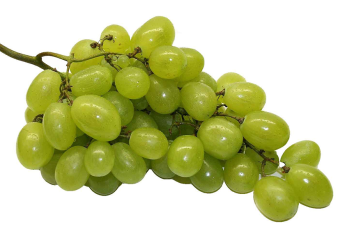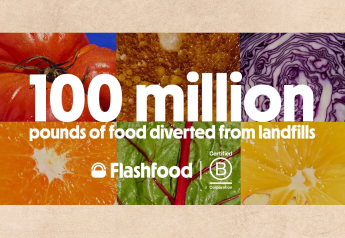Vitamin K, found in grapes, focus of COVID-19 research

A recent study published in the scientific journal Clinical Infectious Diseases found that a lack of adequate vitamin K levels was associated with poor outcomes in COVID-19 patients.
The researchers identified an increased need for vitamin K during a COVID-19 illness and noted that depletion or deficiency of vitamin K can have devastating consequences in the lungs. Vitamin K, a nutrient found in abundance in fresh grapes, plays a
critical role in blood clotting including maintaining the balance of both pro- and anti-clotting factors.
Low levels of vitamin K may upset this balance resulting in a greater tendency for blood to form clots.
While COVID-19 is known first as a respiratory infection, higher instances of blood clots have been observed and worsen patient outcomes.
Vitamin K is also involved in inhibiting soft tissue calcification and elastic fiber degradation. Coronary calcification is linked to a higher risk of blood clots, and elastic fiber degradation can harm the integrity of lung tissue. In addition, vitamin K is known for anti-inflammatory activity; decreased levels have been associated with an increase in inflammatory proteins.
Other research suggests that certain flavonoid compounds found in grapes, green tea, cacao, and dark chocolate may be beneficial against COVID-19 by inhibiting an enzyme that is involved in the infectivity of the virus.
This research used computer modeling techniques and a lab study to predict how certain flavonoids – specifically flavan-3-ols and proanthocyanidins — can bind to a critical enzyme that contributes to the infectivity of COVID-19 and inhibit its action.
“Anything that may help offset the negative impact of this devastating virus is worth knowing so the findings that natural components found in grapes — vitamin K and certain flavonoids — may play a beneficial role in the fight is worth sharing,” said Kathleen Nave, president of the California Table Grape Commission. “These recent findings add to the substantial body of research built over 20 years indicating that eating fresh grapes can have significant positive effects on long-term health.”







